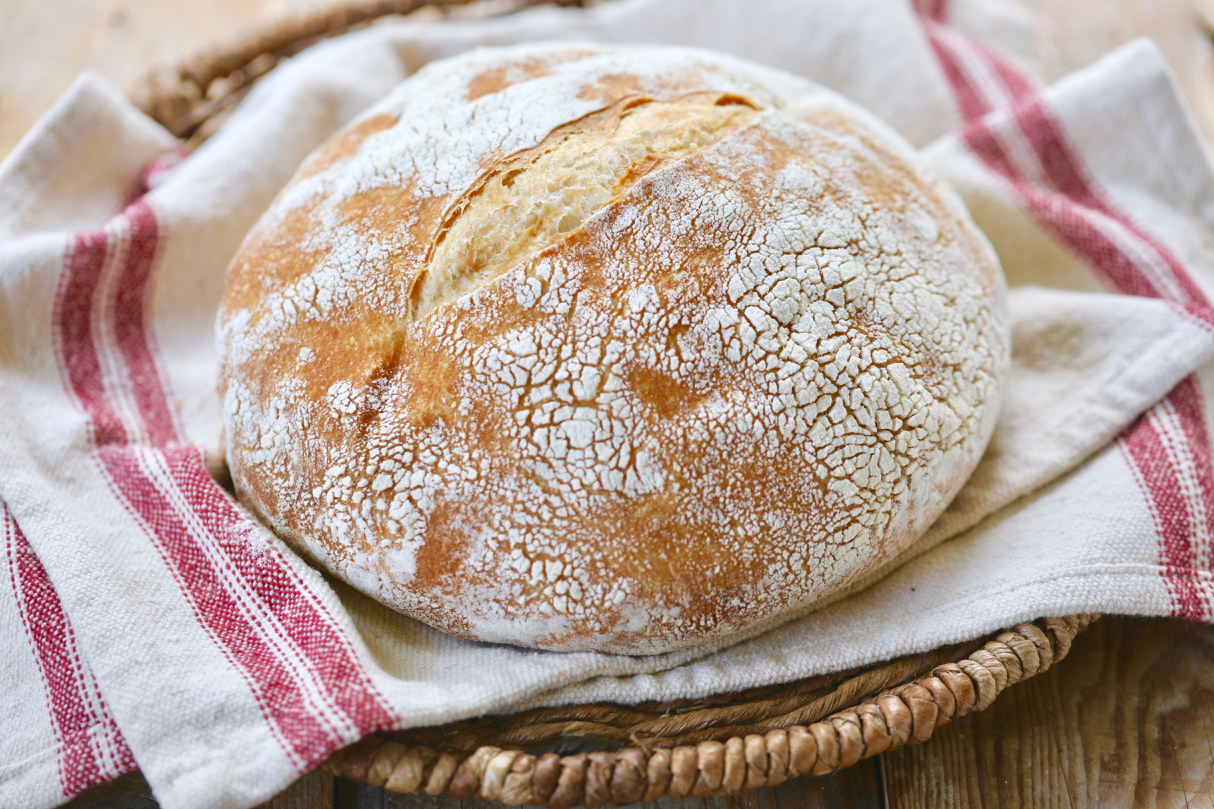In the realm of artisanal baking, sourdough bread has taken a prominent place on the tables of food enthusiasts and health-conscious consumers alike. While bread in its many forms has been a dietary staple for millennia, sourdough offers unique benefits that set it apart from its conventional counterparts. From health advantages to its rich, complex flavors, sourdough bread provides a compelling reason to reconsider what we reach for at the bakery.
Health Benefits of Sourdough
Easier Digestion

One of the standout benefits of sourdough bread is its ease of digestion. The fermentation process involved in making sourdough breaks down gluten and phytic acid, substances that can be problematic for many people. The natural bacteria and yeasts in the sourdough starter pre-digest these components, making the bread easier on the stomach. This can be particularly beneficial for individuals with gluten sensitivities, though it's important to note that sourdough is not gluten-free and is not suitable for those with celiac disease.
Enhanced Nutrient Absorption
Sourdough fermentation also improves the bioavailability of nutrients. The lactic acid bacteria that develop during the fermentation process enhance the availability of essential vitamins and minerals. Studies have shown that sourdough bread contains higher levels of B vitamins, such as folate, and minerals like iron and magnesium, compared to regular bread. These nutrients are more readily absorbed by the body, contributing to better overall nutrition.
Lower Glycemic Index
For those concerned about blood sugar levels, sourdough bread offers a distinct advantage. Sourdough has a lower glycemic index (GI) compared to many

commercially produced breads. This means that sourdough causes a slower, more gradual rise in blood sugar levels, making it a better option for individuals managing diabetes or those seeking to maintain steady energy levels throughout the day.
Natural Preservative Qualities
The fermentation process also acts as a natural preservative. The acetic acid produced during fermentation inhibits the growth of mold and harmful bacteria, allowing sourdough bread to stay fresh longer without the need for artificial preservatives. This not only extends the shelf life of the bread but also reduces the reliance on chemical additives that are often found in commercial bread products.
Superior Taste and Texture
Sourdough’s unique flavor profile is another compelling reason for its popularity. The fermentation process develops a distinctive tangy taste, which is a result of the lactic acid bacteria. This complexity of flavor is unmatched by breads made with commercial yeast. Sourdough's chewy crust and soft, airy crumb provide a satisfying contrast in textures, making each bite a delightful experience.
Environmental and Culinary Appeal
Sustainability
In addition to its health benefits and superior taste, sourdough bread is also a more sustainable option. Traditional sourdough baking relies on natural leavening agents rather than commercial yeast, which promotes biodiversity. Furthermore, sourdough baking often encourages the use of locally sourced, organic flours, supporting sustainable agricultural practices. This approach helps reduce the carbon footprint associated with bread production and supports local economies.

Culinary Versatility
Sourdough’s versatility in the kitchen is another reason for its growing popularity. Beyond the classic sourdough loaf, this type of bread can be used in a variety of culinary applications. From sourdough pizza crusts and pancakes to pastries and even stuffing, the possibilities are endless. Chefs and home bakers alike appreciate sourdough for its ability to enhance a wide range of dishes with its unique flavor and texture.
A Growing Movement
The resurgence of sourdough baking is not just a passing trend but part of a larger movement towards more mindful and sustainable eating. Many people have embraced the practice of maintaining their own sourdough starters, finding joy and satisfaction in the process of creating something from scratch. Numerous online communities and resources have sprung up to support both novice and experienced bakers, fostering a shared passion for this ancient craft.
:max_bytes(150000):strip_icc()/sourdough-boule-FT-RECIPE0520-2000-ce5dfc8958114d8f96478665537ff503.jpg)
With its array of health benefits, unparalleled taste, and positive environmental impact, sourdough bread stands out as a superior choice over conventional bread. Its digestibility, nutrient density, and lower glycemic index make it a healthful option for many, while its rich flavor and versatile applications continue to captivate food lovers. For those looking to improve their diet and enjoy the art of baking, sourdough offers a rewarding and delicious journey.
Whether you're an experienced baker or just starting, embracing sourdough can enhance your culinary repertoire and contribute to a healthier, more sustainable lifestyle. As the movement grows, so does our appreciation for the timeless tradition of sourdough baking, proving that sometimes, the old ways are indeed the best.
#amikrafty




